On November 7, 2020, the 2nd Zhejiang University Xiong’an Development Forum was held at Zhejiang University. The forum was themed as “Future City - Wisdom for Xiong’an”, and was jointly organized by Xiong’an Development Center and School of Public Affairs. More than 250 people, including officials of Xiong’an New Area, leaders of Zhejiang University, famous experts and scholars, representatives of Zhejiang University alumni, undergraduate and graduate students, MPA students and media reporters attended this Forum.
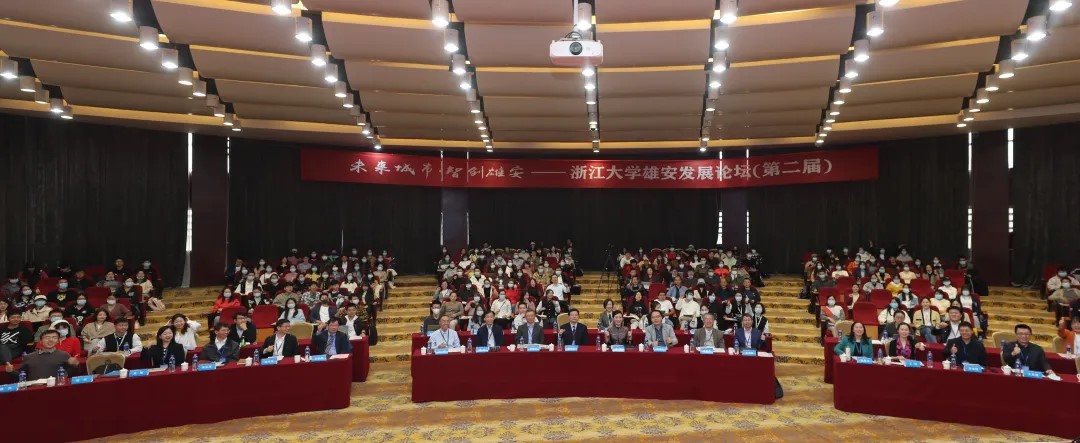
Yang Guofu, Secretary of the Party Committee of School of Public Affairs, said that the Xiong’an Development Center of Zhejiang University is a strategic and innovative initiative to implement the cooperation between Zhejiang University and Xiong’an New Area, aiming to build a think-tank for theoretical support, practical discussion and advice, and to form a strong synergy to promote the quality planning, construction and development for the New Area. The School of Public Affairs, as the unit that Xiong’an Development Center is attached, will focus on the major needs of the Xiong’an New Area, relying on the School’s disciplinary and talent advantages in policy consultation, decision-making research, and planning and demonstration, to help the Center mobilize the wisdom and innovative power of other ZJU institutions, and to advance cooperation between the two sides. The wisdom of Zhejiang University and solutions from School of Public Affairs will contribute to the New Area, and help constructing the Center as a platform with significant knowledge spillover effects, serving the planning and construction of the New Area and working together on its future development.
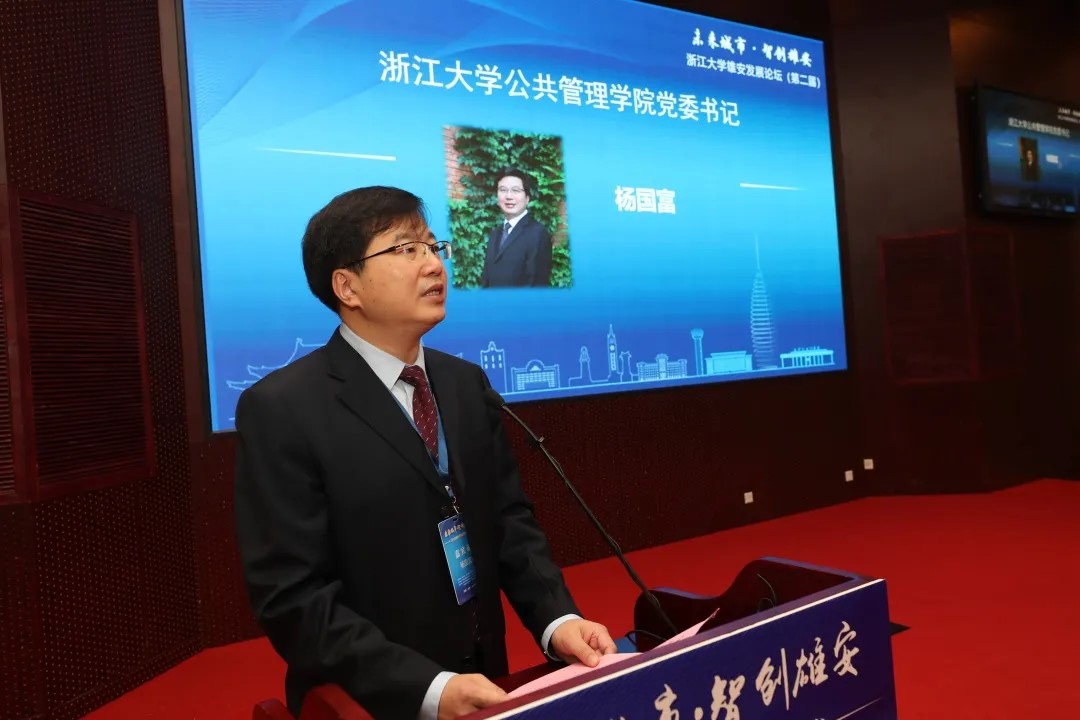
Zhang Qi, Deputy Director of the Bureau of Reform and Development of the Xiong’an New Area, stated that the establishment of Xiong’an New Area in Hebei is a major historical and strategic choice made by the Central Committee of the CPC and a major national event of the millennium. Xiong’an New Area has basically formed a “1+4+26” planning system with multiple regulations, advance planning adhered by city construction, and digital and physical cities growing together, to ensure “sticking to a single blueprint until the end”. As a century-old university, Zhejiang University is actively implementing the major decision of the Party Central Committee to establish the New Area, and since the establishment of the Center one year ago, a series of fruitful bilateral exchanges have been carried out, including the FinTech Lab, the Think Tank, and the Xiong’an Development Forum, all indicating the promising bilateral strategic cooperation between the two sides. The two sides should continue to strengthen the regular cooperation mechanism to meet the major needs of the construction and development of the New Area, support its development and cultivation of high-end and high-tech industries based on the discipline and talent advantages of Zhejiang University, and promote the exchange of talents.
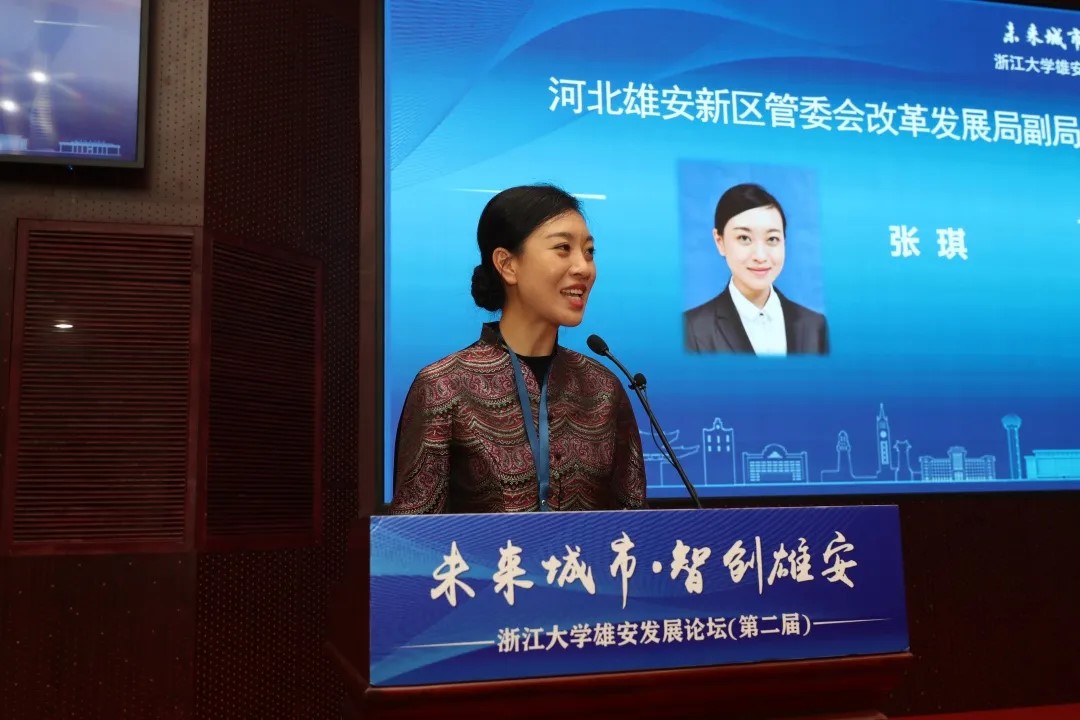
The experts and scholars who attended the forum talked about the concrete path of Xiong’an New Area’s high-standard construction and high-quality development from different disciplinary perspectives and professional dimensions, intending to build the New Area into an innovative smart city that is green, low-carbon, information-intelligent, livable and workable.
Professor Li Guoping, Dean of Beijing Development Institute of Peking University, pointed out that “one core two wings” synergy is an important grip to promote the formation of multi-center and networked spatial structure of world-class city clusters of Beijing, Tianjin and Hebei. The collaborative development model of “one core two wings” is centered on the relationship between “capital” and “city”, and focuses on defining the respective positioning and division of labor of Beijing, Beijing sub-center and Xiong’an New Area in Hebei. Building itself into a science and technology innovation-led wing is an inherent requirement for the Xiong’an New Area to achieve high-quality development. Professor Dong Xuebing, Deputy Director of the Research Center for Regional Coordinated Development at Zhejiang University, discussed the cross-administrative boundary cooperation in the construction of the New Area and suggested that cross-regional mechanisms should be established for planning, collaborative development, industrial cooperation, and benefit-sharing and protection compensation.
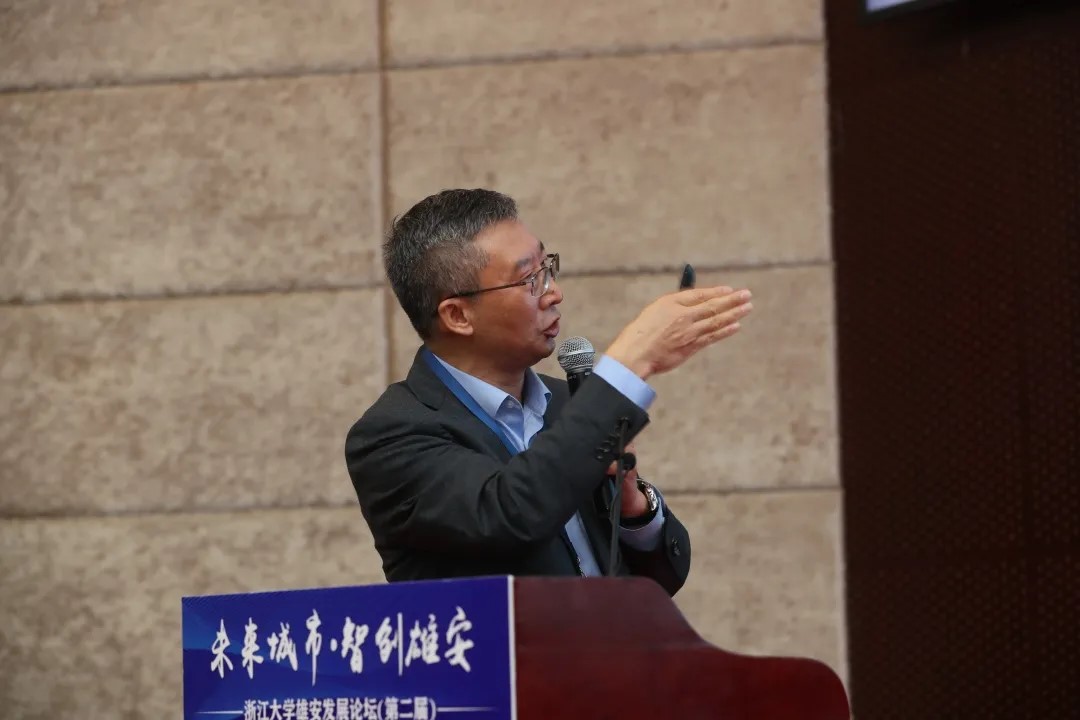
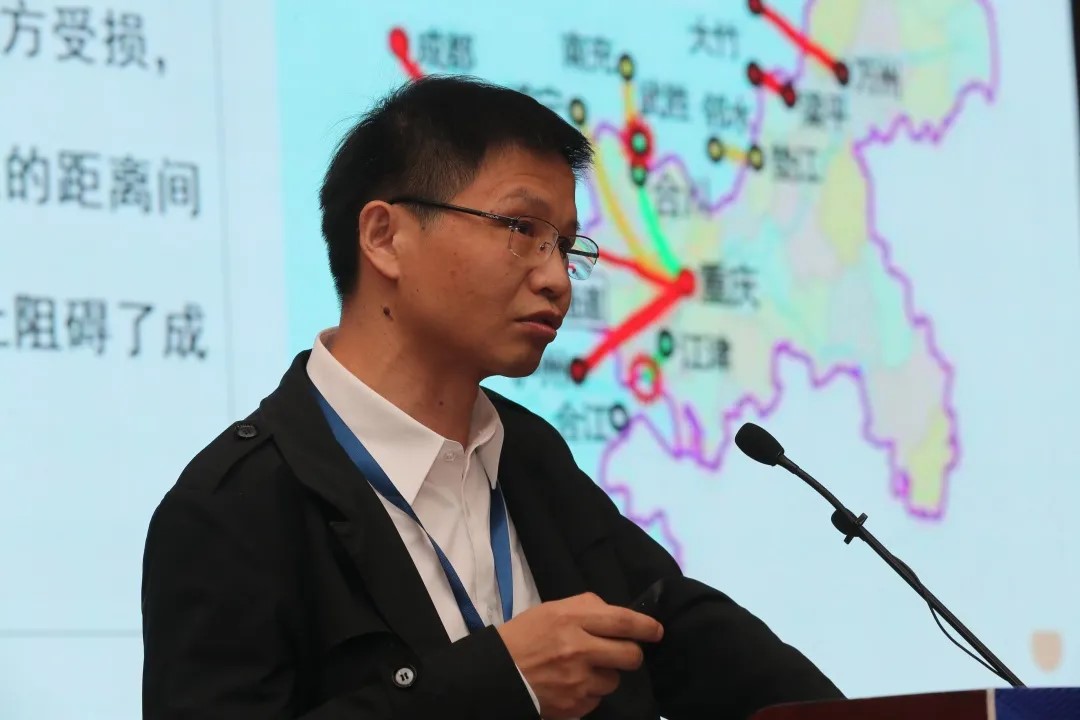
According to Liu Ting, Director of the Research Center for Urban and Regional Development at Zhejiang University, the planning and construction of a new city with a population of one million must pay attention to four key practical aspects: the spatial resources, the employed and dependent population, the industry, and the funding for construction. Relatively speaking, the most difficult problem is the fourth. He suggested taking government funds as the leading and market funds as the main body, with a thirty-seventy ratio. Infrastructure construction and public institutions should be mainly financed by government funds, while industrial development and individual housing by market funds. The investment and construction of the New Area needs to face the problem of feasible and predictable institutional supply.

Zhang Weiwen, Associate Dean of School of Public Affairs, and Li Shengquan, Chief Architect of City Cloud Technology (China) Co., Limited. respectively introduced the city brain and the Hangzhou practice of digital governance, and discussed how Hangzhou’s experience can help the New Area to build a digital city, the construction of which should focus on people as the core, adhere to policy innovation, take technology as a guarantee, and emphasize on government-enterprise cooperation. Specifically, the emphasis of governance should shift from “power” to “data” and from “static” to “dynamic”, while the decision-making from “experienced” to “wisdom”. Xiong’an New Area should give full play to its second-mover advantages, prepare an integrated development plan for digital governance across the region, promote the construction of a standardized city brain platform, optimize joint decision-making mechanisms at the level of key cities, and create multi-scene applications and digital cockpits at small and medium scales in the surrounding area.
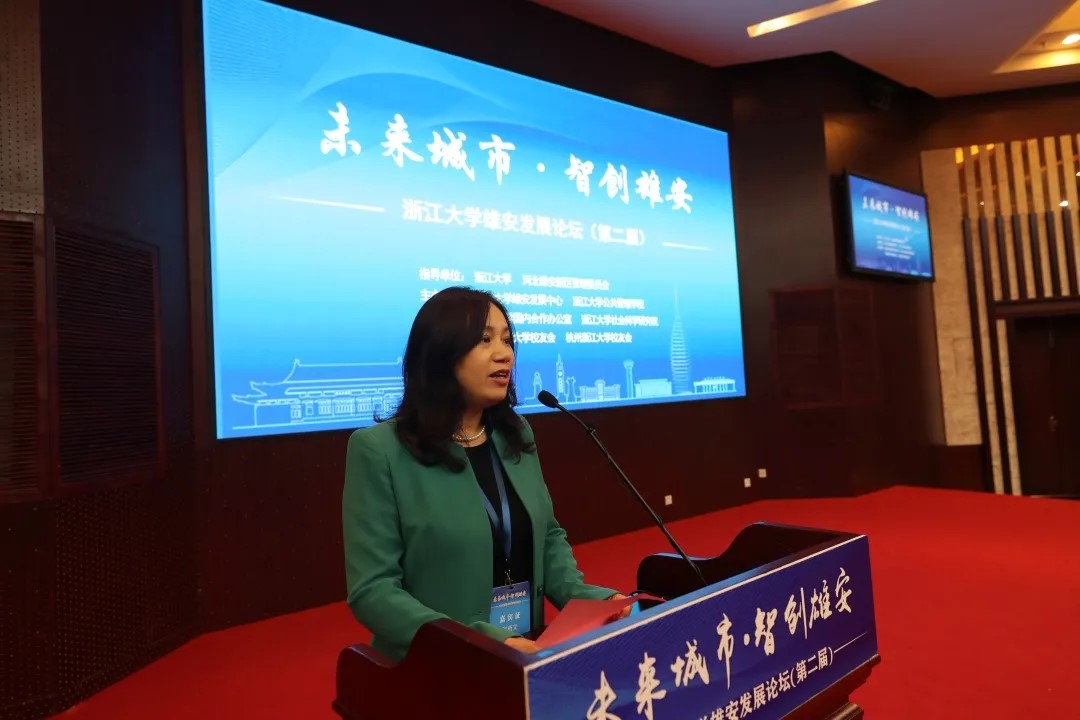
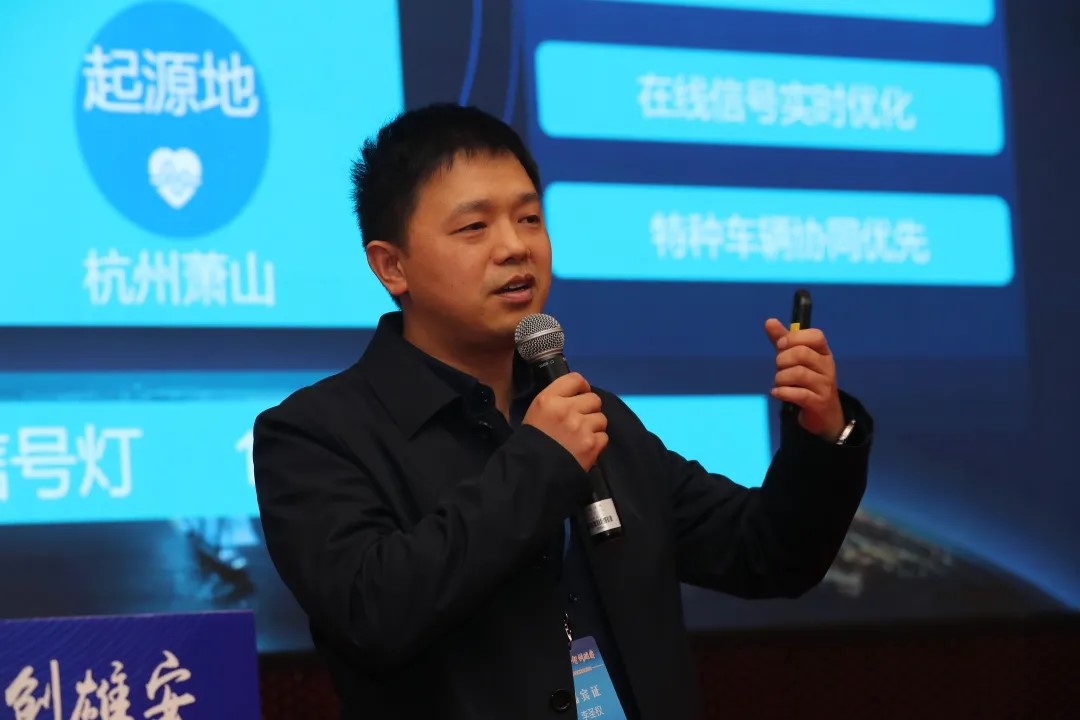
Lan Weiqing, Invited Member of the Consulting Committee of Zhejiang Provincial People's Government, compared Xiong’an New Area in Hebei Province with Jiaxing and Huzhou in Zhejiang Province, saying that the demonstration area in the Yangtze River Delta on ecologically friendly development can be built in accordance with the new development concept, and by drawing reference to the role played by the Xiong’an New Area in the Beijing-Tianjin-Hebei region, to promote the integration of Jiaxing and Huzhou, to build them into a “Jiangnan Xiong’an”, playing a leading role in exploring and establishing a modern economic system of high quality in the country, an equivalent of Xiong’an New Area.
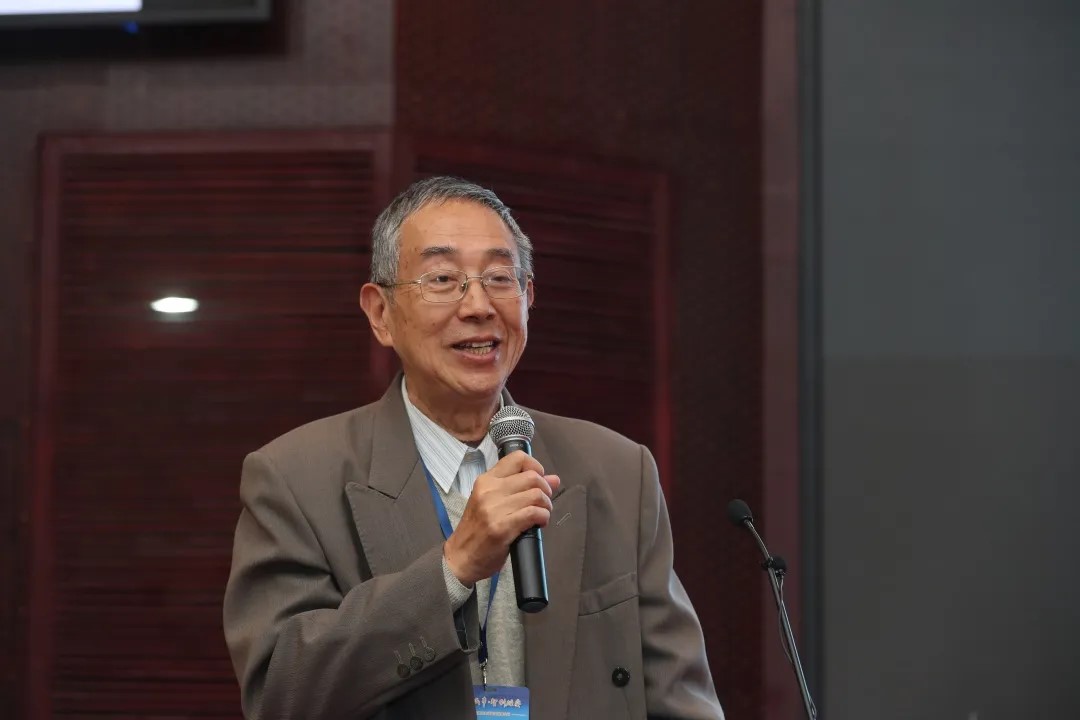
As stated by Professor Shi Minjun, Director of the Xiong'an Development Center at Zhejiang University, since its establishment over a year ago, the Center has always played a bridging role in theoretical and practical exchanges between the university and the New Area. It has actively mobilized resources within the university, promoting research at the Xiong’an Think Tank, and organized the first Xiong’an Development Forum, a series of themed cloud seminars, as well as field research activities, promoting increasingly frequent, diversified and in-depth cooperation and interaction between both sides.
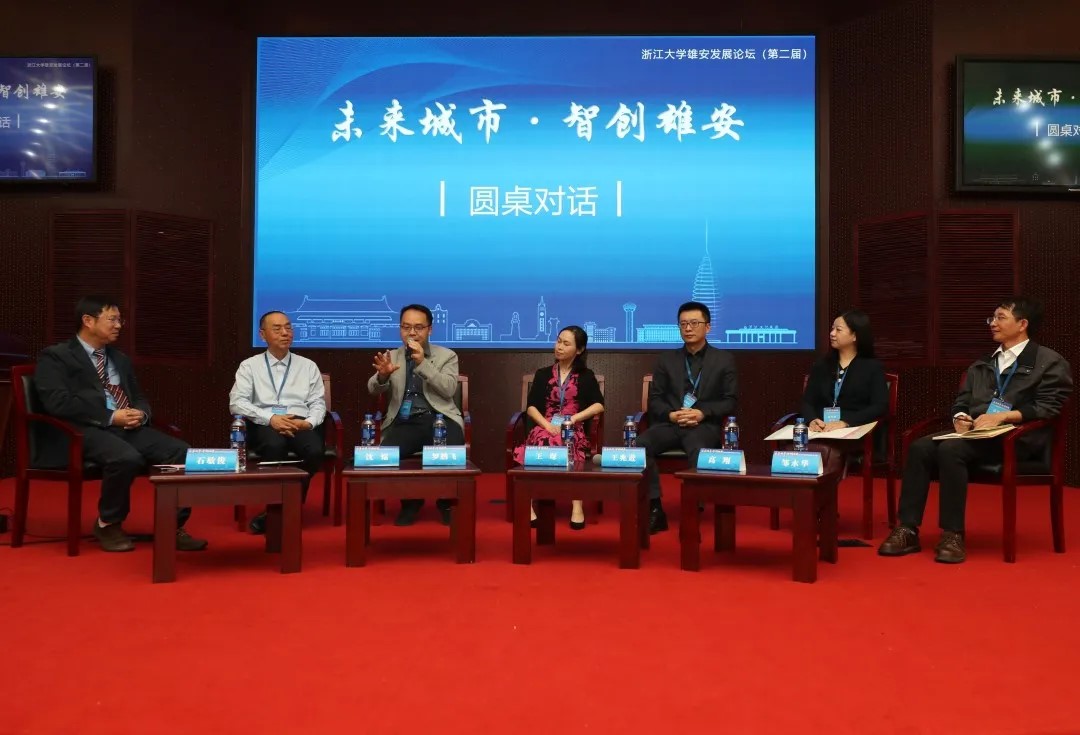
Guests of the Panel Discussion (from left to right): Shi Minjun (Director of Xiong’an Development Center, Zhejiang University), Shen Lei (Executive Secretary-General of the China Society of Natural Resources), Luo Pengfei (Deputy Director of the Bureau of Planning & Construction, Xiong’an New Area), Wang Chen (Deputy Director of Xiong’an Development Center, Zhejiang University), Wang Zhaojin (Vice President of Wonders Information Co., Ltd), Gao Xiang (Assistant to the Dean of the School of Public Affairs, Zhejiang University), Zou Yonghua (Deputy Director of the Department of Urban Development and Management, Zhejiang University).
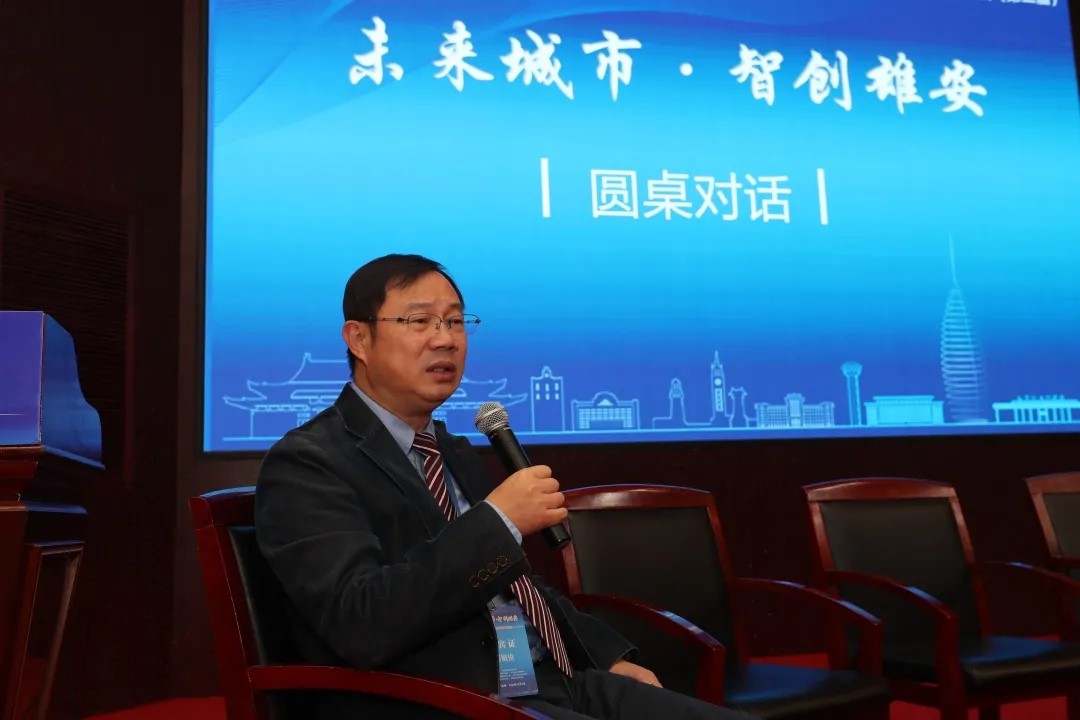
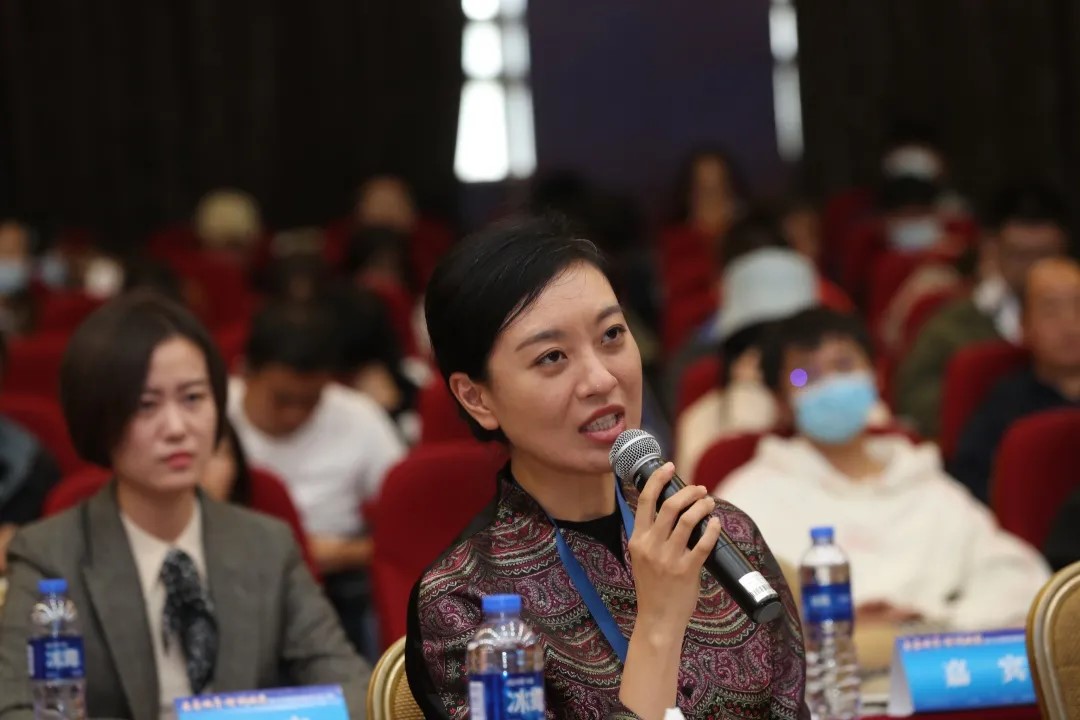
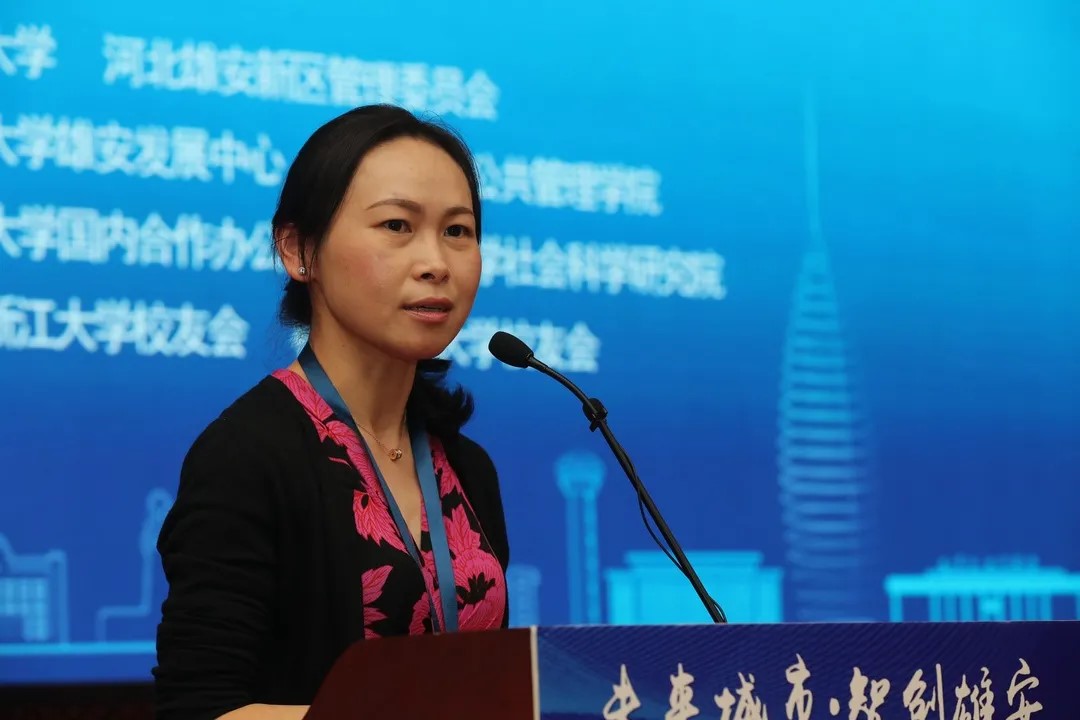
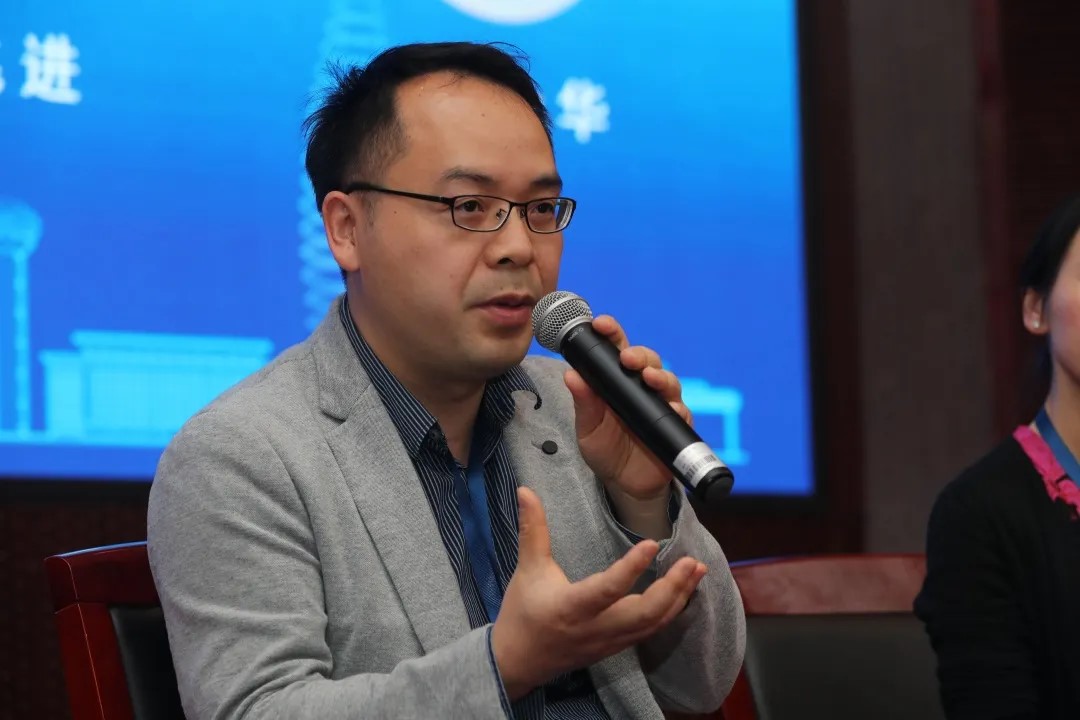
Media Coverage.
Zhejiang Daily: Experts Advise Future City: Promote Jiaxing Huzhou Integration
https://zj.zjol.com.cn/news.html?id=1557896
Hangzhou Daily: “Future City – Wisdom for Xiong'an”! The 2nd Xiong’an Development Forum was Held at Zhejiang University
https://apiv4.cst123.cn/cst/news/shareDetail?id=509715575329521664
Tianmu News: Progress of Xiong’an New Area Construction? News from Forum held at Zhejiang University
https://tm.zjol.com.cn/interface/getNews?id=225942&doc_type=2


